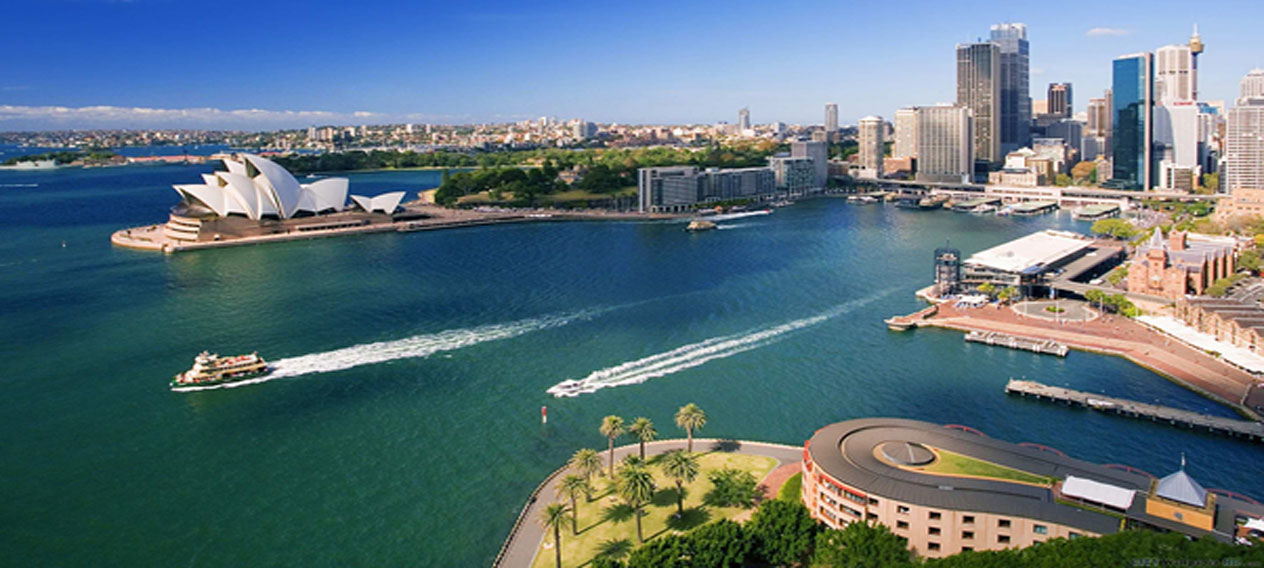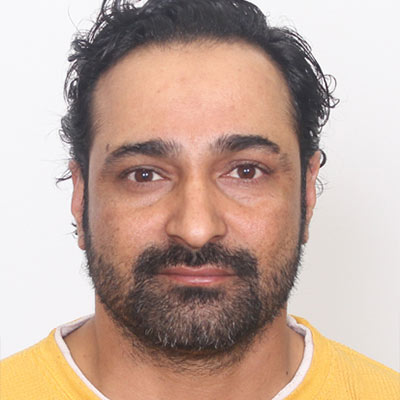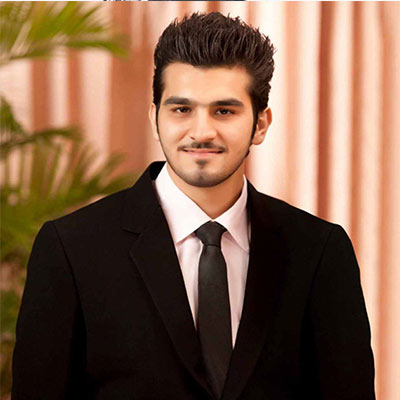WHY STUDY IN Australia?
- A highly developed country and one of the wealthiest economy.
- 3rd Most Popular International student destination
- 8 out of 100 universities that top the international chart belong to Australia
- 5 out of 30 cities, renowned as top student cities, are based in Australia
- 15 years of education is acceptable for Master programmes
- Short duration for the masters courses which is between 1, 1.5 to 2 yrs .
- Visa process is straightforward and fair.
- A safe country with pleasant climate and a stable democracy.
- Considered next to US and Canada, Australia is easy on the pocket. Be it the cost of living, or cost of education, the prices are cheaper without compromising on the quality.
- Scholarship Opportunity is good
- There is skills shortage in Australia so job opportunities are high after the graduation
- 2 years Post study work visa for the bachelor degree or above level students
Education System in Australia
The Australian education system comprises of primary, secondary and tertiary education.
School education (Primary and Secondary)
- Primary school - Runs for seven or eight years, starting at Kindergarten/Preparatory through to Year 6 or 7.
- Secondary school - Runs for three or four years, from Years 7 to 10 or 8 to 10.
- Secondary school - Runs for three or four years, from Years 7 to 10 or 8 to 10.
Tertiary education
Tertiary education includes both higher education (including universities) and vocational education and training (VET). It can also be provided by the higher education institutions such as Technical and Further Education (TAFE) institutes and Registered Training Organisations (RTOs).
Technical and Further Education (TAFE) :
TAFE institutes in Australia are government owned and have a long history of helping international students reach their career goals. International students attend TAFE institutes to complete courses that range from certificate to postgraduate level.
Why study in TAFE ?
- improve your opportunities of being accepted into university study
- gain practical, work-based skills to improve your employment prospects
- You can take advantage of the wide variety of courses on offer
- It can be use as a pathway to university program
A list of TAFE institutes can be found here
Vocational education and training (VET) :
VET courses are offered by Registered Training Organisations (RTOs). These can include Technical and Further Education (TAFE) institutes and private colleges. These organisations are all registered by each Australian state or territory authority to:
- provide quality training
- deliver courses developed with industry
- issue a nationally recognised qualification.
- It can be use as a pathway to university program
Universities
University offers Bachelor , Master and PhD programmes . Ordinary bachelor degree is of 3 years and an honours bachelor degree is of 4 years in duration. Master degree can be of 1, 1.5 and 2 years . PhD degree can be of 2 years and 4 years. A list of Australian University can be found here
AQF : The Australian Qualifications Framework (AQF) is a system which made it possible for people to access university degrees through their vocational qualifications.Below table describe how students can switch from one institute to another.
| School | Vocational Education | University | AQF Level |
|---|---|---|---|
| Doctoral Degree | Level 10 | ||
| Masters Degree | Level 9 | ||
| Graduate Diploma Graduate Certificate Bachelors Honours Degree | Level 8 | ||
| Bachelors Degree | Level 7 | ||
| Associate Degree Advanced Diploma | Level 6 | ||
| Diploma | Level 5 | ||
| Certificate IV | Level 4 | ||
| Certificate III | Level 3 | ||
| Certificate II | Level 2 | ||
| Certificate I | Level 1 | ||
| Senior Secondary Certificate of Education | |||
How can I apply to Australian Education Institute?
Australia generally has two intakes i.e. February and July, with few Universities offering multiple intake in September & November. It is suggested that you should start making applications ideally 7-8 months prior to the intake. University generally takes around 4-6 weeks to process the applications.
To gain a place on a course you must:
- academic achievements (transcripts, certificates); Resume, SOP, 2 reference letters , Passport copy and experience letter ( if applicable) .
- English language proficiency
- funds to support your study;
- overseas student health cover.
Include family
You can include family members when you lodge your visa application. For student visas, your family member is:
- your partner, or
- your or your partner's dependent child who is unmarried and has not turned 18 years of age
You must declare your family members in your student visa application even if they do not plan to travel with you to Australia. If you do not do this, your family members will not be eligible for a student visa to join you in Australia.
Your family members can also apply as a subsequent entrant (at a later time, separate from your application) in ImmiAccount.
Family members who apply for the visa must meet our requirements for health and character
Packaged courses and CoEs
You can apply to take 2 or more courses on your Student visa where one course clearly leads to the next. Course gaps must be less than two calendar months, unless the first course finishes at the end of the standard academic year and the next course commences at the beginning of the standard academic year.
If you are applying for more than 1 course in your student visa application you must include all CoE codes in the application form or your visa may only cover the CoE provided.
If you do not meet the entry requirements
If a you does not get the required score in the English tests, then you may go for pre-sessional English programme (ELICOS ) of various durations that precede the start of the main course of study and have several intake dates throughout the year
For those who do not quite meet the academic level required, Foundation courses or pre-Masters conducted by many of the institutions may be the solution.
| English language test providers | Minimum score | Minimum score and at least 10 weeks English Language Intensive Courses for Overseas Students (ELICOS) | Minimum score and at least 20 weeks ELICOS |
|---|---|---|---|
| International English Language Testing System (IELTS) | 5.5 | 5 | 4.5 |
| TOEFL internet-based test | 46 | 35 | 32 |
| Cambridge English Advanced (Certificate in Advanced English) | 162 | 154 | 147 |
| Pearson Test of English Academic (PTE Academic) | 42 | 36 | 30 |
| Occupational English Test | B for each test component | N/A | N/A |
Cost of Living
Knowing the average living costs in Australia is an important part of your financial preparation. For your reference, here are some of the costs associated with living and studying in Australia. (All costs are in Australian dollars and linked to the consumer price index.)
Accommodation
- Hostels and Guesthouses - $90 to $150 per week
- Shared Rental - $85 to $215 per week
- On campus - $90 to $280 per week
- Homestay - $235 to $325 per week
- Rental - $165 to $440 per week
- Boarding schools - $11,000 to $22,000 a year
Other living expenses
- Groceries and eating out - $80 to $280 per week
- Gas, electricity - $35 to $140 per week
- Phone and Internet - $20 to $55 per week
- Public transport - $15 to $55 per week
- Car (after purchase) - $150 to $260 per week
- Car (after purchase) - $150 to $260 per week
Minimum cost of living
The Department of Immigration and Border Protection has financial requirements you must meet in order to receive a student visa for Australia. 1st February 2018 the 12 month living cost is:
- You - $20,290
- Partner or spouse - $7,100
- Child - $3,040
Visa Process and Requirements
If you intend to study in Australia, you will need to apply for the Student visa (subclass 500).
You can apply for the following types of study on this visa:
- English Language Intensive Courses for Overseas Students (ELICOS)
- school – primary or secondary
- secondary school exchange program
- vocational Education and Training (VET) courses –a registered VET course or a registered course for the award of an advanced diploma
- higher education courses –a bachelor or associate degree, a graduate certificate or graduate diploma, a masters degree by coursework or a higher education diploma or advanced diploma
- postgraduate Research degrees –a masters degree by research or a doctoral degree
- non-award courses – non-award foundation studies courses or components of a course that do not lead to an award
- students sponsored by the Department of Foreign Affairs or Trade or the Department of Defence.
You may be able to package your courses if you would like to study more than one course. This is known as course packaging.
Please fine complete information here.
Prerequisite for the visa are as below :
- provide evidence that you've been accepted onto a course, be this a copy of your confirmation of enrolment (CoE) or offer letter;
- meet the Genuine Temporary Entrant requirement;
- provide proof of your finances;
- possess English language proficiency skills ( IELTS, TOEFL, PTE ) .
- have health insurance, which can be provided by obtaining Overseas Student Health Cover (OSHC);
- not have a substantial criminal record.
You'll also need to submit application form 157A, passport photos and proof of your academic record.
Financial requirement for Visa :-
If you need to provide evidence of financial capacity, you will be able to demonstrate this by providing one of the following:
- evidence of funds to cover travel to Australia and 12 months’ living, course and (for school aged dependants) schooling costs for the student and accompanying family members
- evidence that you meet the annual income requirement
- an Acceptance Advice of Secondary Exchange Students (AASES) form (secondary exchange students only)
- a letter of support from the Department of Foreign Affairs and Trade or Department of Defence.
Twelve months' funds option
Evidence of funds can include money deposits, financial institution or government loans, scholarships or sponsorships.
Annual income option
The annual income option requires a student to provide evidence of personal annual income of at least AUD 60,000. For students accompanied by family members, the requirement is at least AUD 70,000. The income demonstrated must be the personal income of your spouse (who is not coming with you) or parents. Where both of your parents are working, their combined income can be considered for this requirement. Evidence must be in the form of official government documents such as tax assessments. Evidence in the form of bank statements or information directly from an employer is not acceptable.
Schooling costs
Where school aged children are included in your student visa application, schooling costs of at least AUD 8,000 per year for each child will need to be added to the amount of funds required. You are responsible for researching schooling costs, which vary between states, territories and schools in Australia.
You do not have to provide evidence of schooling costs if you are
- a PhD student and can show you have enrolled your child in an Australian government school where the fees have been waived
- received an Australian Commonwealth Government scholarship, including Foreign Affairs and Defence sponsored students, and you can show you have enrolled your child in a government school where the fees have been waived.
Genuine access to funds
You and your accompanying family members must be able to access the funds shown while you are in Australia.
When considering whether the funds will be genuinely available, we will take into account:
- the nature of the relationship between you and the person who is providing the funds, where applicable
- your income, assets and employment or those of the person providing the funds
- your previous visa history and that of the person providing the funds.
Acceptable form of Funds
Fixed Deposits
Balance in saving accounts
Public Provident funds
EPF, GPF, CPF, EF
Post office savings
Bank Loan ( Educational loan , Term loan , Personal loan or overdraft)
NB: Funds must be in nationalised bank, Foreign bank , or in Private bank
Importantly , if students enrolled at an education provider with the lowest immigration risk outcomes will have lower evidentiary requirements, regardless of their nationality. Students enrolled at an education provider with the highest immigration risk outcomes will have access to reduced evidentiary requirements if they are from a country with the lowest immigration risk.
Pay the visa fee and get a TRN-number
When you have completed the application you should pay the application fee which currently is 575 AUD. The easiest is to pay it with a credit card online. Read more about the payment here: https://www.border.gov.au/Lega/Lega/Help/how-to-pay
When the application and payment is done you will get a receipt with a TRN-number (Transaction Reference Number). Make sure to save it so you can check the status of your application.
Stay longer
To continue studying in Australia, you must apply for a new Student visa
If your Student visa will expire before your graduation you might be eligible for a Visitor visa (subclass 600). You will need a letter from your education provider with the date of your graduation.
If you hold or held a student visa and completed specific qualifications in Australia in the last six months, you might be eligible for a Temporary Graduate visa (subclass 485).
If you are a recent engineering graduate of a recognized institution you might be eligible for the Skilled Recognition Graduate visa (subclass 476).
If you want to stay longer for other reasons, you must apply for a new visa that suits your circumstances. Explore your visa options.
University List
| University Name | Location |
|---|---|
| Australian Catholic University | North Sydney |
| Bond University | Robin |
| Central Queensland University | North Rockhampton |
| Charles Darwin University | Darwin |
| Charles Sturt University | Bathurst |
| Curtin University | Perth |
| Deakin University | Geelong |
| Edith Cowan University | Joondalup |
| Federation University Australia | Ballarat |
| Flinders University | Adelaide |
| Griffith University | Brisbane |
| James Cook University | Townsville |
| La Trobe University | Melbourne |
| Macquarie University | Sydney |
| Monash University | Clayton |
| Murdoch University | Murdoch |
| Queensland University of Technology | Brisbane |
| RMIT University | Melbourne |
| Southern Cross University | Lismore |
| Swinburne University of Technology | Hawthorn |
| The Australian National University | Canberra |
| The Australian National University | Canberra |
| The University of Adelaide | Adelaide |
| The University of Melbourne | Melbourne |
| The University of New South Wales | Sydney |
| The University of Newcastle | Callaghan |
| The University of Notre Dame Australia | Fremantle |
| The University of Queensland | St Lucia |
| The University of Sydney | Sydney |
| The University of Western Australia | Crawley |
| Torrens University Australia | Adelaide |
| University of Canberra | Canberra |
| University of New England | Armidale |
| University of South Australia | Adelaide |
| University of Southern Queensland | Toowoomba |
| University of Tasmania | Hobart |
| University of Technology, Sydney | Sydney |
| University of the Sunshine Coast | Sippy Downs |
| University of Wollongong | Wollongong |
| Victoria University | Melbourne |
| Western Sydney University | Penrith |
Colleges List
| New South Wales (NSW) Colleges of TAFE | |
|---|---|
| Hunter Institute | |
| Illawarra Institute | |
| New England Institute | |
| North Coast Institute | |
| Northern Sydney Institute | |
| Riverina Institute | |
| South Western Sydney Institute | |
| Sydney Institute | |
| Western Institute | |
| Western Sydney Institute | |
| Victoria (VIC) Colleges of TAFE | |
| Bendigo TAFE | Visit Website |
| Chisholm | Visit Website |
| The Gordon | Visit Website |
| GO TAFE | Visit Website |
| Holmesglen | Visit Website |
| Kangan Institute | Visit Website |
| Melbourne Polytechnic | Visit Website |
| South West TAFE | Visit Website |
| Western Institute | Visit Website |
| Sunraysia Institute | Visit Website |
| William Angliss Institute | Visit Website |
| Queensland (QLD) Colleges of TAFE | |
| TAFE Brisbane | Visit Website |
| TAFE Gold Coast | Visit Website |
| TAFE East Coast | Visit Website |
| TAFE South West | Visit Website |
| TAFE North | Visit Website |
| TAFE North | Visit Website |
| South Western Sydney Institute | Visit Website |
| Sydney Institute | Visit Website |
| Western Institute | Visit Website |
| Western Sydney Institute | Visit Website |
| Canberra (ACT) Colleges of TAFE | |
| Canberra Institute of Technology | Visit Website |
| South Australia (SA) Colleges of TAFE | |
| Eynesbury | Visit Website |
| International College of Hotel Management | Visit Website |
| SAIBT South Australian Institute of Business and Technology | Visit Website |
| TAFE SA | Visit Website |
| Western Australia (WA) Colleges of TAFE | |
| Central Institute of Technology | Visit Website |
| Challenger Institute of Technology | Visit Website |
| Durack Institute of Technology | Visit Website |
| Great Southern Institute of Technology | Visit Website |
| Kimberley Training Institute | Visit Website |
| Pilbara Institute | Visit Website |
| Polytechnic West | Visit Website |
| South West Institute of Technology | Visit Website |
| West Coast Institute of Training | Visit Website |
| Tasmania (TAS) Colleges of TAFE | |
| TasTAFE | Visit Website |
Working in the Australia
During Study : Student visas allow you to work for up to 40 hours every two weeks ( 20hrs/week) while your course is in session, and unrestricted hours during any scheduled course break, but before you undertake any paid work you need to make sure your visa allows you to work. Students can expect around $12 to 15 per hour .
Post-study Work :
The Temporary Graduate visa (subclass 485) allows graduates to work in Australia temporarily after they finish their studies. It has two streams: the Graduate Work stream and the Post-Study Work stream
The Graduate Work stream is for international students who graduate with skills and qualifications that relate to an occupation considered in demand in the Australian labour market, as indicated in the Skilled Occupation List (SOL). A visa in this stream is generally granted for 18 months.
The Post-Study Work stream offers extended options for working in Australia to eligible graduates of a higher education degree. Under this stream, successful applicants are granted a visa with a visa period of two, three or four years’ duration, depending on the highest educational qualification they have obtained.
- This visa allows eligible international students who have completed an Australian education to stay in Australia to gain work experience
- You can work in Australia for a period of 18 months and up to 4 years, depending on your qualification.
- This visa does not restrict the type of work you may do or the number of hours you may work.
- Applications for this visa must be made in Australia and you must hold an eligible student visa in the last 6 months.
- You must meet Australian study, English proficiency, health insurance, health and character requirements.
- You must meet the specific requirements of the stream in which you are applying for this visa.






